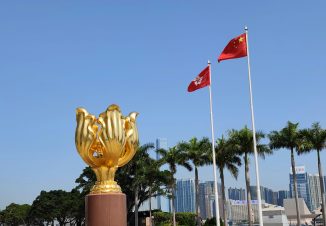
Hong Kong: Looking back
Labour Tribunal empowered to order compulsory reinstatement and re-engagement
The Employment Ordinance 2018 (Amendment—No.2) came into effect on 19 October 2018 and applies to dismissals of which notice is given on or after 19 October 2018. Under it, the Labour Tribunal may now order compulsory reinstatement or re-engagement of an employee if the termination is both unlawful and unreasonable, where it is reasonably practicable to do so.
Immigration Department policy change for same-sex partners
Following a policy change effective from 19 September 2018, the Hong Kong Immigration Department now permits the other party to a same-sex marriage/partnership to apply to join their same-sex partner, who has been admitted into Hong Kong (e.g. through an employment visa), for residence in Hong Kong as a dependant.
Extension to statutory paternity leave
Legislation gazetted at the end of 2018 extended statutory paternity leave from three to five days. Male employees who meet certain requirements and who have a child born on or after 18 January 2019 are now entitled to five days paid paternity leave.
Increased tax deductions for MPF voluntary contributions and annuity premiums
A new law came into operation on 1 April 2019 that allows taxpayers to benefit from an aggregate maximum of HKD 60,000 per year in tax deductions for contributions paid into tax-deductible MPF voluntary contributions accounts and qualifying deferred annuities premiums. Previously, the aggregate maximum was HKD 36,000 per year.
Hong Kong: Looking ahead
Proposal to increase statutory maternity leave
Hong Kong’s Chief Executive, Carrie Lam, flagged a proposed increase to statutory maternity leave at the end of 2018. The current proposal will involve an increase in statutory paid maternity leave from ten to 14 weeks, with the Government subsidising the final four weeks, up to a statutory cap. A bill amending the Employment Ordinance is expected to be introduced to the Legislative Council in late 2019.
Changes to anti-discrimination laws
The Discrimination Legislation (Miscellaneous Amendments) Bill 2018, the first and second reading of which took place in 2018, proposes changes to the four Hong Kong Discrimination Ordinances, which cover sex, disability, family status and race, to enhance protection against discrimination and harassment. Employers should keep an eye on developments and make adjustments to their policies accordingly, should this bill be passed.
Singapore
Singapore employment law has seen significant changes over the last six years and the country continues to take steps to improve employees’ rights while balancing the needs of businesses. However, 2019 would seem to be the most radical in terms of such legal developments.
Amendments to the Employment Act
Significant changes to the Singapore employment law landscape were introduced with recent amendments to the Employment Act (Chapter 91), effective from 1 April 2019. Perhaps the biggest change is the removal of the monthly salary cap of SGD 4,500 for professionals, managers and executives (PMEs). Before the amendment, PMEs in receipt of a monthly salary exceeding SGD 4,500 per month were not entitled to key statutory benefits under the Employment Act. With this change, nearly all employees in Singapore (with the exception of public servants, domestic workers, and seafarers) will be entitled to key benefits under the Employment Act including minimum days of annual leave, paid outpatient sick leave, hospitalisation leave, reimbursement of medical examination fees, and protection from wrongful dismissal.
Guidelines on wrongful dismissal
The changes to the Employment Act have also significantly increased the pool of potential claimants against employers for wrongful dismissal cases. However, the Employment Act does not define what constitutes wrongful dismissal. On 1 April 2019, the Tripartite Alliance, which includes, among others, the Ministry of Manpower (MOM), published tripartite guidelines on wrongful dismissal (the Guidelines), which aim to provide guidance to employers and employees on what constitutes wrongful dismissal. The Guidelines clarify, among other things, that dismissals with notice (or payment of salary in lieu of notice) are presumed not to be wrongful as both parties to the employment contract have a right to contractually terminate with notice. While the Guidelines do not have legal force, they are very persuasive and will serve as a reference for mediators and adjudicators at the Tripartite Alliance for Dispute Management (TADM) and Employment Claims Tribunal (ECT) respectively.
Changes to the employment dispute resolution framework
The dispute resolution framework for employment-related disputes in Singapore has also been restructured through amendments to the Employment Claims Act 2016. Before the Employment Claims Act was amended, wrongful dismissal claims were adjudicated by the MOM, while salary-related disputes were mediated at the TADM and if unresolved, were escalated to the ECT. With the amendments to the Employment Claims Act, the ECT will be empowered to hear wrongful dismissal cases in addition to salary-related disputes. Accordingly, the ECT offers a one-stop service for employment dispute resolution, as employees are no longer required to go down two different routes to resolve their employment disputes.
The original version of this article can be read here: HR Magazine Hong Kong


